Search
Search Results
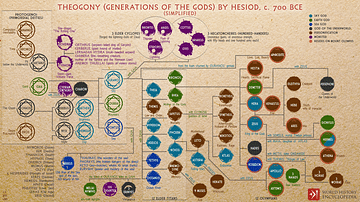
Definition
Hesiod
Hesiod (c. 700 BCE) in conjunction with Homer, is one of those almost legendary early Greek Epic poets. His works are not of comparable length to Homer's. Hesiod's poems are not epic because of their length, but because of their language...
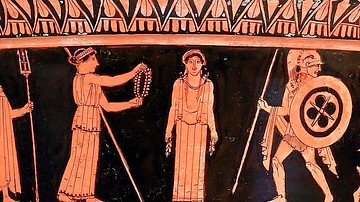
Definition
Works and Days
Works and Days is an epic poem written in dactylic hexameter, credited to the 8th-century BCE Greek poet Hesiod. Hesiod is generally remembered for two epic works, Theogony and Works and Days but, like his contemporary Homer, he was part...
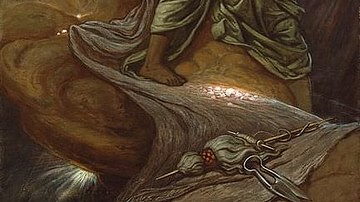
Definition
Theogony
The Theogony is an 8th-century BCE didactic and instructional poem, credited to the Greek poet Hesiod. The Theogony was, at first, not actually written down, rather, it was part of a rich oral tradition which only achieved written form decades...
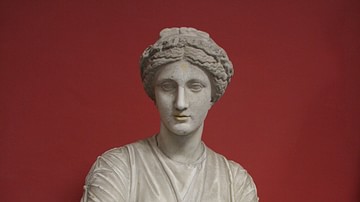
Article
Hesiod on the Birth of the Gods
The Greek poet Hesiod (c. 700 BCE) is most famous for his works Theogony and Works and Days. In this passage from Theogony, Hesiod relates the birth of the gods from cosmic Chaos and follows the lineage through the great Zeus, King of the...
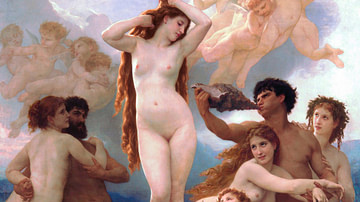
Definition
Greek Mythology
Greek mythology was used as a means to explain the environment in which humankind lived, the natural phenomena they witnessed and the passing of time through the days, months, and seasons. Greek myths were also intricately connected to religion...
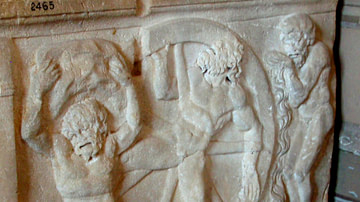
Definition
Tartarus
In Greek mythology, Tartarus was the lowest point of the universe, below the underworld but separate from it. Tartarus is best known from Hesiod's Theogony as one of the first beings to come into existence in the universe and also as the...
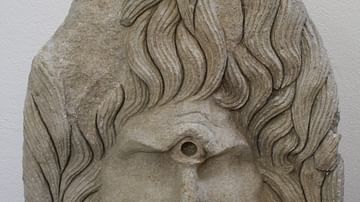
Definition
Cyclops (Creature)
A cyclops (meaning 'circle-eyed') is a one-eyed giant first appearing in the mythology of ancient Greece. The Greeks believed that there was an entire race of cyclopes who lived in a faraway land without law and order. Homer, in his Iliad...
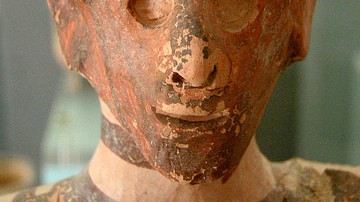
Definition
Greek Dark Age
The Greek Dark Age (c. 1200 to c. 800 BCE, overlapping with the Iron Age, c. 1200-550 BCE) is the modern-day term for the period in Greek history following the Bronze Age Collapse when the Mycenaean Civilization fell and the Linear B writing...
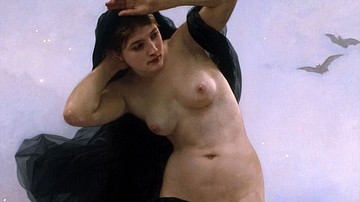
Definition
Nyx
Nyx (also known as Nox or the Night) is the personification of the night in Greek mythology. Coming from Chaos (Void), Nyx is a primordial deity (Protogenoi). The Protogenoi represent the physical and elemental forces of the world and consist...
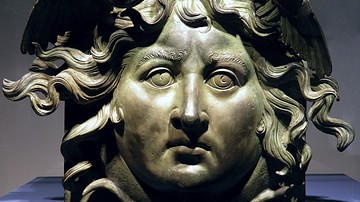
Definition
Medusa
Medusa is a figure from Greek mythology, the only mortal of the three Gorgons, along with her immortal sisters, Stheno and Euryale. The three Gorgons were born to the sea god of the dangers of the hidden deep, Phorcys, and the goddess of...